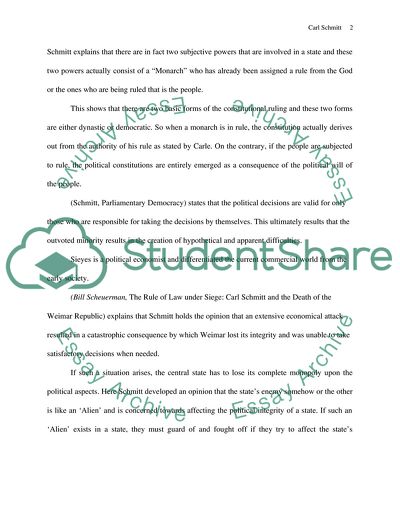Cite this document
(“Carl Schmitts Friend/enemy Distinction Essay Example | Topics and Well Written Essays - 1500 words”, n.d.)
Retrieved from https://studentshare.org/sociology/1562590-analyse-carl-schmitt8223s-friendenemy-distinction
Retrieved from https://studentshare.org/sociology/1562590-analyse-carl-schmitt8223s-friendenemy-distinction
(Carl Schmitts Friend/Enemy Distinction Essay Example | Topics and Well Written Essays - 1500 Words)
https://studentshare.org/sociology/1562590-analyse-carl-schmitt8223s-friendenemy-distinction.
https://studentshare.org/sociology/1562590-analyse-carl-schmitt8223s-friendenemy-distinction.
“Carl Schmitts Friend/Enemy Distinction Essay Example | Topics and Well Written Essays - 1500 Words”, n.d. https://studentshare.org/sociology/1562590-analyse-carl-schmitt8223s-friendenemy-distinction.


